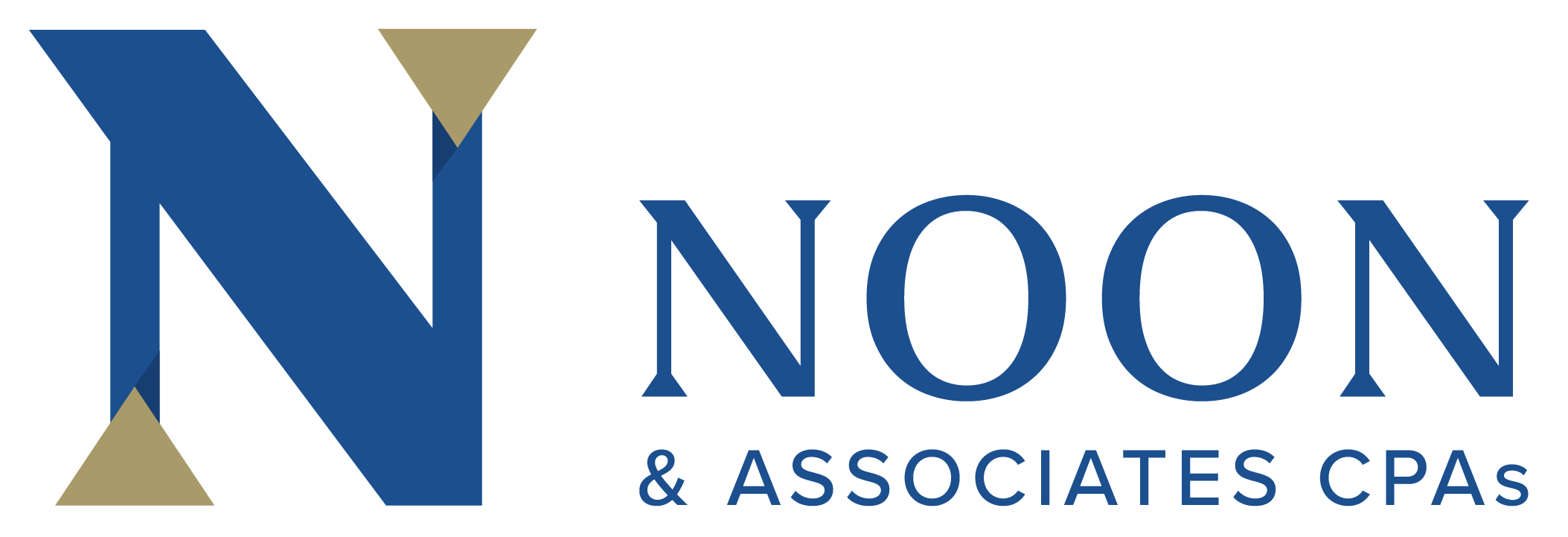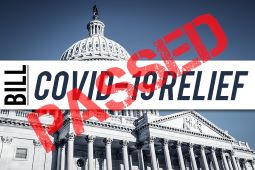This morning, the House of Representatives approved the historic $2 trillion stimulus package that passed the Senate earlier this week and the President just signed the bill. The bill approved by the House is the same as the one passed the other day, no changes.
Be sure to follow us on the following pages for latest information:
Here is a top level view of the key tax provisions:
Individual Provisions:
- Direct cash relief $300B to individuals in the form of “recovery rebate” checks issued through the IRS with base amounts of $1,200 for single taxpayers and $2,400 for joint filers. Those amounts would increase by $500 for every qualifying child. Relief amounts would begin to phase out when adjusted gross income (AGI) exceeds $75,000 for single taxpayers, $112,500 for heads of households, and $150,000 for joint filers. Payments would be reduced by $5 for each $100 by which a taxpayer’s AGI exceeds the phase-out threshold, and relief would phase out completely when a taxpayer’s AGI exceeds $99,000 (for single filers), $146,500 (for heads of households), or $198,000 (for joint returns). Bill provides that AGI for purposes of the phase-out provisions would be based on a taxpayer’s 2019 federal income tax return if it has been filed. If a 2019 return has not been filed, AGI would be based on the taxpayer’s filed 2018 return. Direct deposit to hit in the next couple weeks or mailed checks if bank account not used on the tax return.
- Increased access to retirement funds: The bill would waive the 10 percent early withdrawal penalty for distributions of up to $100,000 from qualified retirement plans to cover emergency expenses related to the coronavirus. Income tax on the distributions would be payable over three years, and withdrawn amounts could be recontributed within three years without regard to that year’s contribution cap. The proposal also would relax the rules for loans from retirement plans for qualified relief.
- Expanded exclusion for employer-provided educational assistance: Employers to provide a student loan repayment benefit to employees on a tax-free basis. Under the provision, an employer may contribute up to $5,250 annually toward an employee’s student loans, and the payment would be excluded from the employee’s income. The $5,250 cap applies to both the new student loan repayment benefit as well as other educational assistance (for example, tuition, fees, books) provided by the employer under current law. The provision would apply to any student loan payments made by an employer on behalf of an employee after date of enactment and before January 1, 2021.
- Net operating loss carryback allowed: The bill will allow taxpayers to carry back net operating losses arising in 2018, 2019, and 2020 to the five prior tax years. NOLs incurred in these years could fully offset prior-year taxable income.
- Expansion of Unemployment Insurance: The bill will provide an extra $600 a week on top of state benefits for four months. The bill also includes language for applying for unemployment insurance related to the COVID-19 virus. Unemployment insurance is extended to nontraditional employees, including gig workers and freelancers.
Business Provisions:
- Refundable employee retention credit: The bill calls a refundable tax credit, computed on a calendar-quarter basis, against the 6.2 percent employer-side Social Security payroll tax and corollary Railroad Retirement Tax Act (RRTA) taxes, respectively – applicable to certain employers carrying on a trade or business in 2020 which either fully or partially suspend operations due to a government order or which sustain a significant decline in gross receipts (defined as the first calendar quarter after December 31, 2019, for which gross receipts within the meaning of section 448(c) are less than 50 percent of the amount in the corresponding prior-year quarter and ending with the next quarter in which gross receipts exceed 80 percent of the corresponding prior year quarter). The refundable credit is only applicable for wages paid after March 12, 2020, and before January 1, 2021. The credit is based on 50 percent of the “qualified wages” (up to $10,000 per employee) paid to each employee and must be reduced by any credits claimed under sections 7001 and 7003 of the Families First Coronavirus Response Act (that is, the credits available to certain employers which provide paid sick leave and paid family and medical leave as separately required under that law).
- Delay of employer payroll tax payments: The bill would allow employers (and self-employed individuals) to defer payment of the 6.2 percent employer-side Social Security payroll tax, effective for wages paid between the date of enactment and December 31, 2020. Payment ultimately would be due in equal parts on December 31, 2021, and December 31, 2022.
- Net operating loss carryback allowed: The bill will allow taxpayers to carry back net operating losses arising in 2018, 2019, and 2020 to the five prior tax years. NOLs incurred in these years could fully offset prior-year taxable income.
- Enhanced interest deductibility: The 2018 tax bill generally limited the deduction for business interest expense to business interest income plus a threshold amount of 30 percent of “adjusted taxable income”. The bill provides that, for 2019 and 2020, the percentage of adjusted taxable income threshold would be increased from 30 percent to 50 percent. Special rules would apply for partnerships. The provision would also allow businesses to use their adjusted taxable income from 2019 in tax year 2020 (rather than their 2020 adjusted taxable income) for purposes of applying the 50 percent limitation. The bill would allow taxpayers to elect out of the favorable rules, while also providing other special rules applicable to partnerships.
- TCJA technical correction for qualified improvement property still in: The bill will treat qualified improvement property (QIP) as 15-year property under MACRS, and eligible for current law 100 percent bonus depreciation, correcting a prominent unintended glitch in the 2018 tax bill.
- Small Business Loans: The new legislation passed today, includes a $350 billion loan program for businesses with fewer than 500 employees (including sole proprietors, independent contractors and anyone otherwise self-employed). Under the bill, loans can be used to meet payroll and cover certain other expenses like utilities or insurance premiums. Borrowers will be able to apply for loan forgiveness if they meet certain requirements. The new loans will be available through private financial institutions — i.e., banks, credit unions. Might be a good idea to check with your bank now to let them know you want to apply as soon as they have an application available, request to be put on a list. There is also a small business $10K emergency grant.
The Temecula Valley Chamber is staying open (although remotely) to help businesses and connecting business folks for needs, please reach out to them if you need anything (members or nonmembers). The point of the chamber is to connect business activity and they are doing anything and everything they can to meet this challenge during these difficult times. They have a good website for information on COVID-19 as it relates to business.
Please let me know if you have any questions or need assistance with anything. I hope that you and your family are healthy and we will get through this, stay strong! Mike


